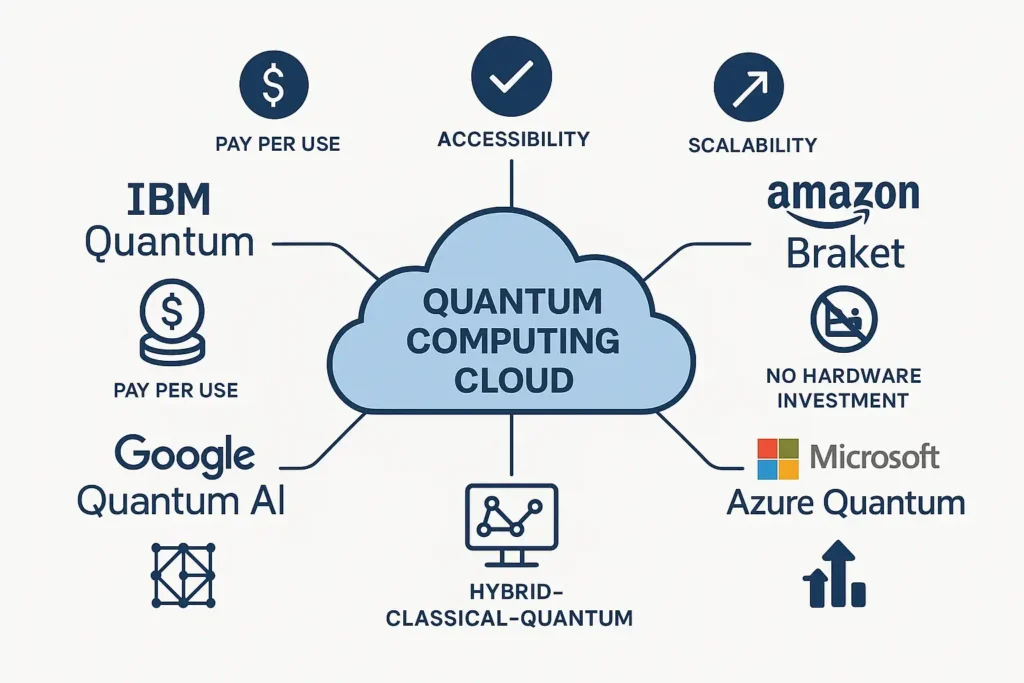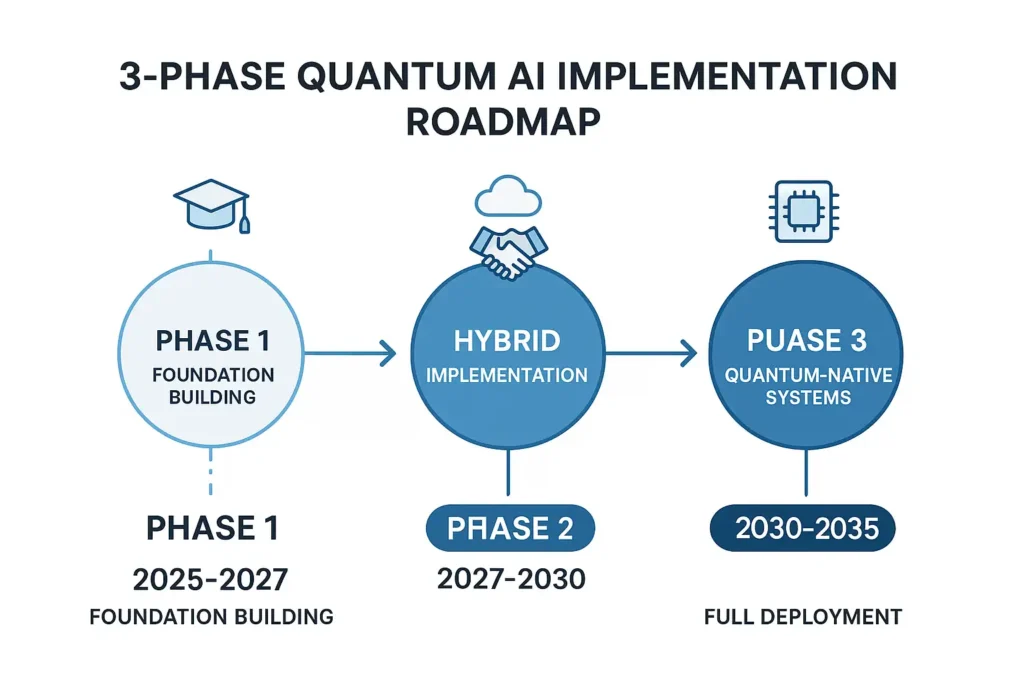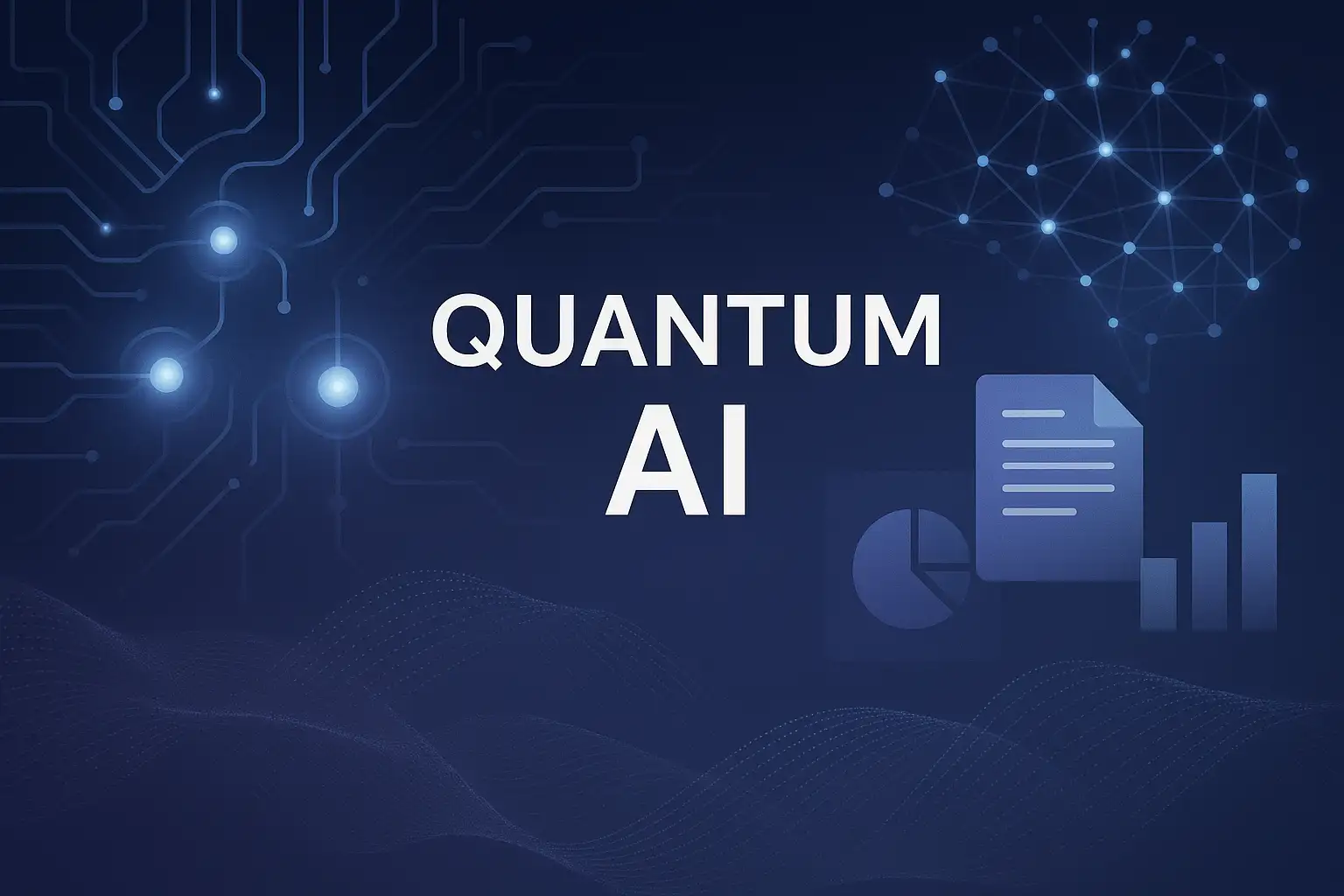Quantum computing is transforming artificial intelligence, promising capabilities that seemed impossible with classical computers. But what does this mean for your business? How do quantum AI systems actually work? And what’s the roadmap for implementation?
At Digitech Services, we’re actively preparing for the quantum AI transformation while many organizations are still learning about its potential. To help you understand quantum AI’s benefits and implementation pathway, we’ll explain quantum computing terms, demonstrate measurable business advantages, and provide a practical roadmap—all through a simple, relatable example: CV screening.
By the end of this article, you’ll understand why quantum AI represents a competitive necessity, not just a technological curiosity, and how to position your organization for quantum advantage.
Our Use Case: CV Screening – A Perfect Quantum AI Example
A CV analyzer is an AI-powered system that automatically processes, evaluates, and ranks job applicants’ resumes. With companies receiving hundreds or thousands of applications per position, these systems have become essential for HR departments worldwide.
This use case perfectly illustrates quantum AI benefits because CV screening involves exactly the types of problems where quantum computing excels: complex pattern recognition, multi-dimensional optimization, and relationship mapping across large datasets. Let’s examine how classical AI currently handles this challenge, then explore how quantum AI transforms the results.
Classical AI Results: Current Limitations
Today’s classical AI-powered CV analyzers achieve 85-95% accuracy in parsing standard resume formats but only 60-75% agreement with human recruiters when ranking candidates. While they process 1,000-5,000 resumes per hour, this speed comes at the cost of nuanced understanding.
Key Limitations
Context blindness: When a resume states “increased sales by 20%,” classical AI treats this as positive regardless of whether this represents $1,000 or $1 million in additional revenue.
Keyword dependency: Candidates using different terminology for the same skills often receive lower scores. A developer describing their role as “guided development team” instead of “team lead” might be overlooked.
Linear thinking: Classical AI cannot effectively model how different qualifications interact synergistically to create unique value.
These limitations represent millions of dollars in lost productivity and competitive disadvantage. Organizations relying solely on classical AI are increasingly falling behind competitors preparing for quantum-enhanced capabilities.
The Quantum AI Benefits: Measurable Superior Performance

Quantum-enhanced CV analyzers would achieve 90-95% accuracy in identifying truly qualified candidates—a dramatic improvement from classical systems’ 60-75% performance. This stems from fundamentally superior pattern recognition and contextual understanding.
Projected Business Impact
Based on quantum computing theoretical advantages and early research findings
| Metric | Classical AI | Quantum AI (Estimated) | Projected Improvement |
|---|---|---|---|
| Candidate Accuracy | 60-75% | 90-95% | ~42% improvement |
| Time-to-hire | 45 days | 28 days | ~38% faster |
| New Hire Performance | 3.2/5.0 | 4.1/5.0 | ~28% better |
| Retention Rate | 78% | 89% | ~14% improvement |
These projections are based on quantum AI’s theoretical computational advantages in pattern recognition and optimization problems. Actual results will vary based on implementation and specific use cases.
The competitive implications are staggering. While competitors struggle with 60-75% hiring accuracy, quantum-ready organizations achieve 90-95% precision, building superior teams that drive exponential business growth.
Understanding Quantum Terms: How Quantum Computing Delivers These Benefits
Quantum AI’s advantages stem from three fundamental quantum properties:
1. Quantum Superposition: Massive Parallel Processing
Classical computers analyze one candidate at a time. Quantum computers can simultaneously evaluate multiple candidate profiles against multiple job requirement interpretations. With 20 qubits, a quantum system processes over one million states simultaneously.
2. Quantum Entanglement: Complex Relationship Mapping
While classical AI evaluates skills independently, quantum AI understands how qualifications interact synergistically. It recognizes that “Python + Finance Background + Team Leadership” creates exponentially more value than the sum of individual parts.
3. Quantum Interference: Pattern Amplification
Quantum systems amplify subtle success patterns across multiple dimensions while suppressing irrelevant noise. This enables discovery of complex, multi-dimensional success patterns invisible to classical analysis.
Real-World Example
Classical AI might miss that candidates with “aerospace background + gaming industry + open source contributions” are perfect for autonomous vehicle AI. Quantum AI discovers this pattern because it recognizes:
- Aerospace = safety-first mindset
- Gaming = real-time performance optimization
- Open source = collaborative problem-solving
This three-way relationship creates the ideal profile, but classical AI cannot process these complex multi-dimensional relationships simultaneously.
Quantum Infrastructure: More Accessible Than You Think

The Common Misconception: Many organizations assume quantum computing requires massive infrastructure investments, specialized facilities, and quantum hardware ownership—making it “out of reach” for most businesses.
The Reality: Quantum computing is already available as cloud-based services, making it accessible without infrastructure investment.
Current Quantum Cloud Options
| Provider | Service | Access Model |
|---|---|---|
| IBM Quantum | Quantum Network | Cloud-based quantum processors |
| Amazon Braket | Quantum Computing Service | Pay-per-use quantum hardware |
| Google Quantum AI | Quantum Computing Service | Cloud access to quantum processors |
| Microsoft Azure Quantum | Quantum Development Kit | Hybrid classical-quantum solutions |
Cost Reality
- No hardware investment required – Access quantum processors through cloud APIs
- Pay-per-use pricing – Only pay for actual quantum computation time
- Hybrid approach – Combine existing classical infrastructure with quantum cloud services
- Gradual adoption – Start with small pilot projects, scale as benefits prove out
Bottom Line: Quantum AI implementation doesn’t require building quantum computers. Like how organizations adopted cloud computing without building data centers, quantum AI can be implemented through cloud services while maintaining existing IT infrastructure.
Your Quantum AI Roadmap: Practical Implementation Steps

At Digitech Services, we’re already navigating this transition, investing in quantum readiness to ensure our clients can implement quantum AI capabilities as soon as they become commercially viable.
Three-Phase Approach
Phase 1: Foundation Building
- Invest in quantum education for key personnel
- Identify quantum-suitable business problems
- Build partnerships with quantum-ready IT services partners like Digitech Services
- Experiment with quantum-inspired algorithms on classical hardware
Phase 2: Hybrid Implementation
- Integrate quantum cloud services for specific optimization tasks
- Develop quantum-enhanced algorithms for high-value applications
- Train workforce on quantum technologies
- Measure quantum performance improvements
Phase 3: Quantum-Native Systems
- Deploy end-to-end quantum AI workflows
- Realize full quantum advantage for complex problems
- Integrate quantum AI across business processes
Key Success Factors
- Start with education: Build quantum literacy without requiring physics expertise
- Focus on suitable problems: Target complex optimization and high-dimensional pattern recognition
- Partner strategically: Collaborate with quantum-ready implementation partners
- Plan gradual transition: Combine classical and quantum components, increasing quantum utilization over time
Conclusion: The Quantum Competitive Reality
The transition from classical to quantum AI represents a fundamental shift that creates sustainable competitive advantages. The competitive reality is stark: organizations that prepare for quantum AI now will build compounding advantages over those that wait.
At Digitech Services, we’re not waiting for the quantum future—we’re actively preparing for it. Our quantum readiness investments ensure that when quantum AI becomes commercially viable, our clients can implement these capabilities immediately while competitors are still learning about the technology.
The question isn’t whether quantum AI will transform these fields, but which organizations will be quantum-ready to capitalize on these advantages first. The quantum leap in AI is coming—and Digitech Services is ready to help you make that leap successfully.
About Digitech Services
Digitech Services is an IT services company with a mission to collaborate with the best tech and research partners, develop, leverage and apply Digital technologies, to elevate the experiences of individuals and organizations, partnering very closely with them on the reinvention journey.
While many IT services companies are still learning about quantum computing, Digitech Services is actively preparing for the quantum AI transformation. Our quantum readiness investments and strategic partnerships position us as the IT services partner that can help organizations capitalize on quantum AI advantages as they emerge.
Contact Digitech Services Today:
- Phone: (602) 758-9982
- Email: info@digitechserve.com
- Website: digitechserve.com
Ready to explore quantum AI for your organization? Partner with Digitech Services—the IT services company that’s already quantum-ready. While competitors are still learning about quantum computing, we’re prepared to help you implement quantum AI capabilities and gain competitive advantages. The quantum revolution in artificial intelligence is here—let Digitech Services help you lead it.

